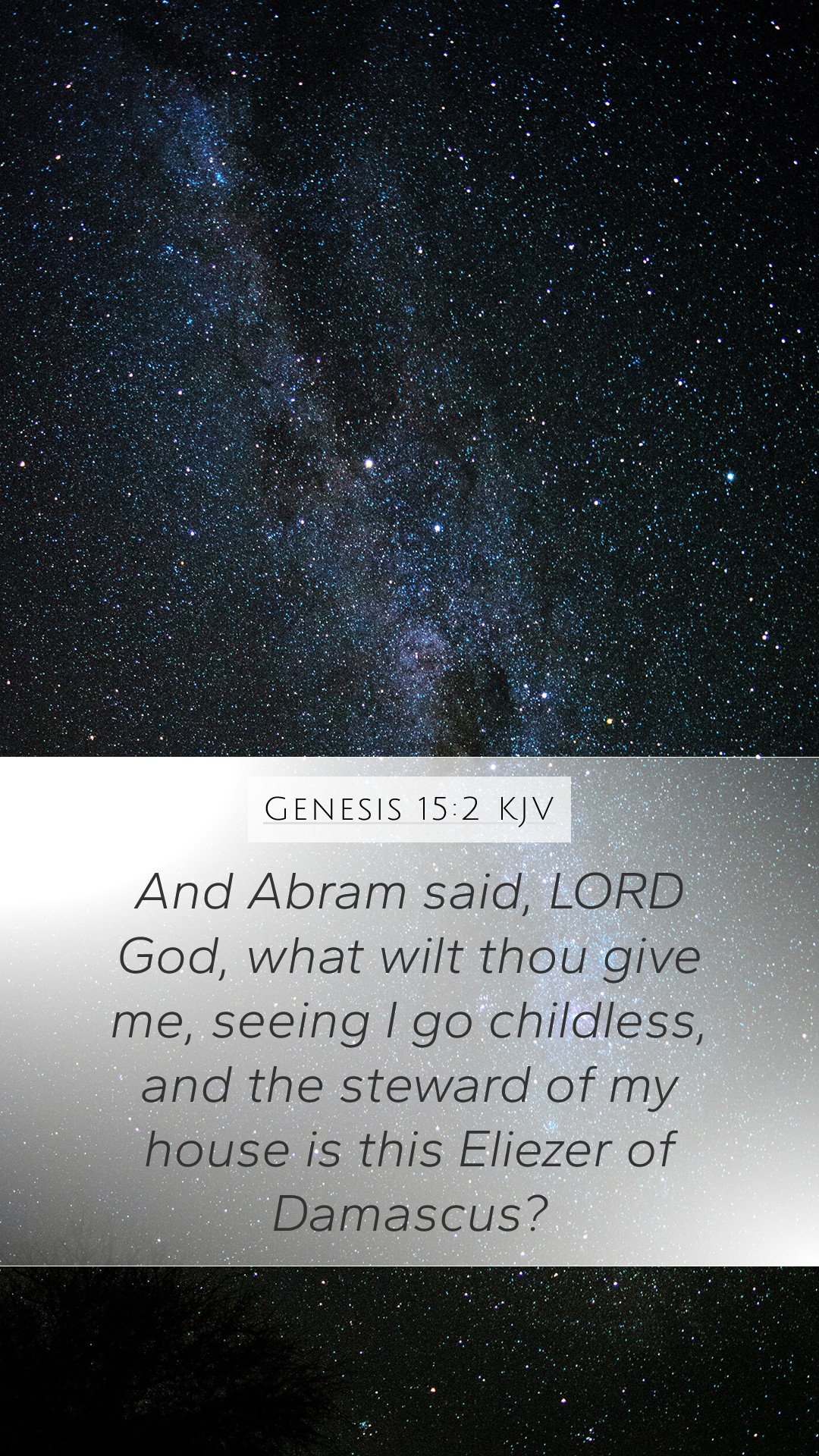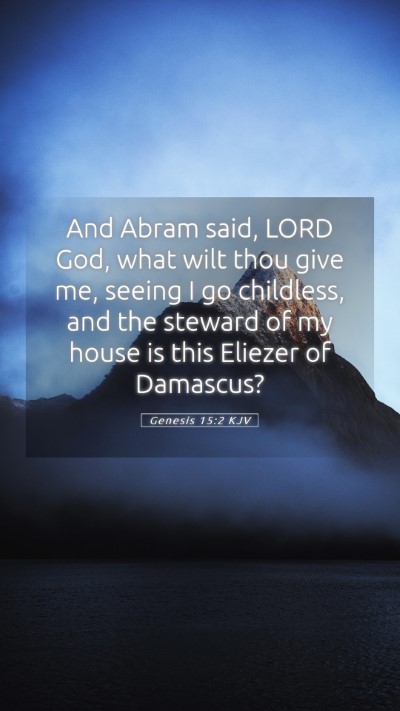Understanding Genesis 15:2
Verse: Genesis 15:2 - "But Abram said, 'O Lord GOD, what will you give me, for I continue childless, and the heir of my house is Eliezer of Damascus?'"
Overview: This verse encapsulates a moment of deep personal reflection and inquiry by Abram (later Abraham) concerning God's promises regarding his future and progeny. It emphasizes the themes of trust, longing for fulfillment of divine promises, and the importance of lineage in biblical times.
Key Themes and Interpretations
- Divine Promises: Abram's inquiry about God's promise of descendants reflects his yearning for reassurance. Commentators like Matthew Henry note that Abram is presenting a valid concern, demonstrating his human emotions and doubts about God's promises amidst his situation.
- Childlessness: The concern of being childless is a significant theme. Albert Barnes explains how in biblical times, having offspring was not merely personal joy but a cultural necessity. Childlessness was often seen as a mark of divine disfavor.
- Heirship: The mention of Eliezer of Damascus as a potential heir indicates Abram's status and the importance of descendants in inheriting God's promises. Adam Clarke points out that Abram’s understanding of inheritance reflects the customs of the day, showing intellectual engagement with both cultural and spiritual contexts.
- Human Doubts: This verse illustrates Abram’s honest grappling with God’s promises. Matthew Henry emphasizes that it is acceptable to express our doubts and uncertainties to God, showcasing a relationship built on trust and openness.
Bible Verse Commentary
In light of the broader narrative of Genesis, Abram’s question serves as a critical pivot point in his spiritual journey. The interaction represents a pivotal moment of divine reassurance which will unfold in subsequent verses.
Contextual Analysis
The historical context sheds light on Abram’s life circumstances, being a significant figure who was chosen by God to father a great nation. As noted by Clarke, at this point, he was already advanced in age and had yet to experience the fulfillment of God’s covenant promises.
Significance of the Inquiry
This inquiry not only reflects Abram's personal struggle but also deep theological questions pertinent to the understanding of God's ways. The dialogue format in the scripture exemplifies the engaging relationship between God and humanity, a focal point for interpretation in bible study lessons.
Bible Study Insights
- Relational Dynamics with God: The verse encourages individuals in online Bible study to approach God with their questions, fears, and uncertainties, fostering a relational dynamic.
- Faith and Doubt: It challenges believers to reflect on their moments of doubt in light of God's faithfulness, revealing underlying insights into applying Bible verses to daily life.
- Cultural Reflection: Understanding the cultural implications of lineage and inheritance can deepen the understanding of how God’s promises function both historically and theologically.
Cross References
Genesis 15:2 connects with several related biblical passages that expand on the themes of promise, faith, and doubt:
- Genesis 12:1-3 - God's initial calling and promise to Abram.
- Genesis 17:3-7 - God’s covenant reaffirmed with Abram regarding his descendants.
- Romans 4:18-21 - Paul's reference to Abram’s faith amidst his childlessness.
Conclusion
Genesis 15:2 is a profound reflection on faith, promise, and the human condition, emphasizing that questioning and seeking understanding are integral aspects of a believer’s journey. The verse invites readers to engage with Bible study tools and Bible study guides to uncover deeper meanings and applications of Scripture in their lives.


